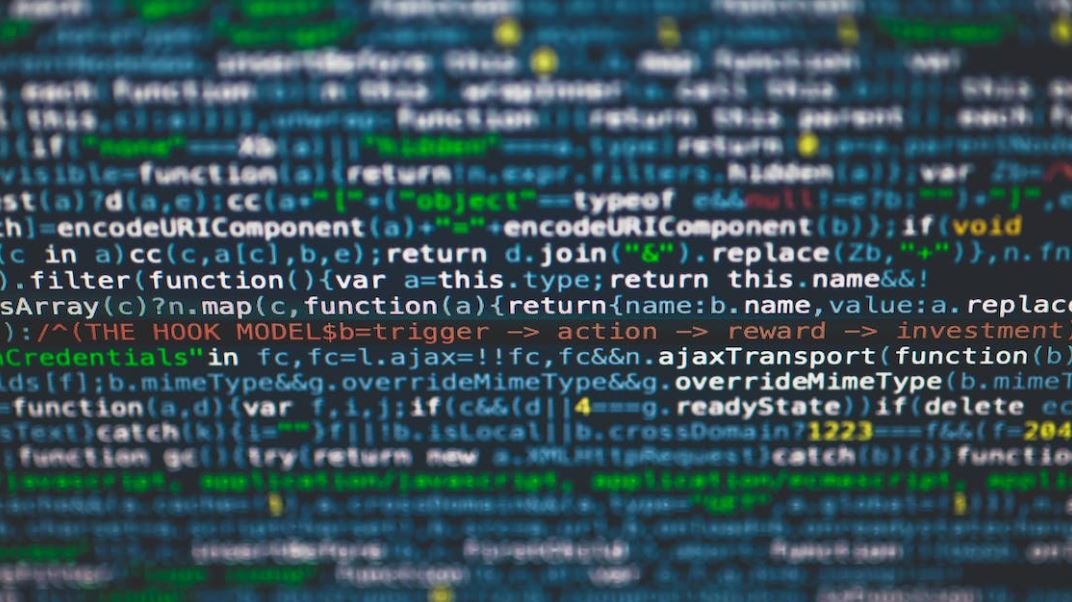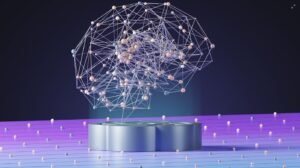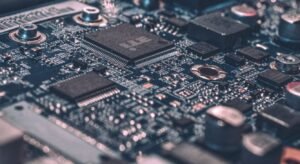Artificial Intelligence or Computer Science: Which Is Better?
Artificial Intelligence (AI) and Computer Science are two distinct yet interconnected fields that have revolutionized technology in various aspects. While both have their unique contributions, understanding the differences can help individuals make informed decisions about which path to pursue. Let’s delve into the intricacies of AI and Computer Science, compare their applications and benefits, and explore which one might be better suited for your interests and career goals.
Key Takeaways:
- Artificial Intelligence (AI) focuses on creating intelligent systems that mimic human behavior and decision-making processes.
- Computer Science encompasses the study of algorithms, programming languages, software development, and the underlying principles of computing systems.
- AI offers exciting opportunities in fields such as autonomous vehicles, healthcare, finance, and natural language processing.
- Computer Science provides a solid foundation for a wide range of careers, including software engineering, data analysis, cybersecurity, and web development.
- Combining AI and Computer Science can lead to interdisciplinary roles and unlock new avenues for innovation.
Understanding Artificial Intelligence (AI)
In simple terms, *Artificial Intelligence (AI)* refers to the ability of machines or computer systems to perform tasks that typically require human intelligence. AI focuses on developing systems that can learn, reason, perceive, and make decisions. It encompasses multiple subfields such as machine learning, neural networks, natural language processing, and computer vision. By leveraging vast amounts of data and powerful algorithms, AI aims to replicate human-like cognitive processes and solve complex problems efficiently.
Understanding Computer Science
*Computer Science (CS)*, on the other hand, involves the study of algorithms, programming languages, software development, and the theoretical foundations of computing. It emphasizes the design and construction of computational systems, including both hardware and software components. Computer Science encompasses various subfields such as computer graphics, data structures, algorithms, and databases. It provides the foundation for developing innovative software applications, designing efficient algorithms, and understanding computational models.
Applications and Benefits of AI
AI has made significant strides across multiple industries, showcasing its potential for transforming various sectors. From autonomous vehicles to virtual assistants, here are some key applications and benefits of AI:
- Autonomous vehicles: AI enables self-driving cars to perceive their environment and make real-time decisions, enhancing safety and efficiency on the roads.
- Healthcare: AI can analyze medical data and assist in diagnosing diseases, discovering new drugs, and predicting patient outcomes, revolutionizing healthcare delivery.
- Finance: AI-driven algorithms can analyze financial data, detect patterns, and make informed investment decisions, contributing to better financial strategies.
- Natural language processing: AI technologies like chatbots and voice assistants can understand and respond to human language, improving user experiences.
Applications and Benefits of Computer Science
Computer Science plays a fundamental role in driving technological advancements and provides a wide range of practical applications:
- Software engineering: Computer Science equips professionals with the skills to design, develop, and maintain software applications, powering modern technology.
- Data analysis: CS enables experts to extract valuable insights from large datasets, facilitating evidence-based decision-making in various domains.
- Cybersecurity: Computer Science helps ensure the security and integrity of digital systems, safeguarding sensitive information from potential threats.
- Web development: CS provides the tools for creating dynamic and interactive websites, shaping the digital presence of businesses and individuals.
AI vs. Computer Science: Which One to Choose?
Deciding between AI and Computer Science depends on your skills, interests, and career aspirations. Here are a few factors to consider when making your choice:
- Passion for AI: If you are fascinated by the concept of machines learning and replicating human intelligence, AI might be the perfect fit.
- Interest in algorithms and programming: If you enjoy solving complex problems using algorithms and want to develop software solutions, Computer Science offers a solid foundation.
- Long-term goals: Consider your career aspirations and the industry you want to work in. AI is well-suited for emerging fields like autonomous systems and data science, while Computer Science provides versatile skills applicable to various sectors.
Comparing Salaries and Job Opportunities
While both AI and Computer Science offer promising career paths, it’s worth understanding the average salaries and job prospects in each field. The following table compares the median salaries of AI and Computer Science professionals in the United States:
| Field | Median Salary (per annum) |
|---|---|
| Artificial Intelligence | $111,118 |
| Computer Science | $86,550 |
Moreover, both fields offer a wide range of job opportunities. Here are some popular job roles in each domain:
| Artificial Intelligence | Computer Science |
|---|---|
| Data Scientist | Software Developer |
| Machine Learning Engineer | Web Developer |
| Natural Language Processing Engineer | Cybersecurity Analyst |
Combining AI and Computer Science
While AI and Computer Science are distinct fields, there is significant overlap between the two. Combining knowledge in both disciplines can unlock new possibilities and create unique career opportunities. For instance, experts with expertise in both AI and Computer Science can pursue roles in AI research and development, data engineering, or even entrepreneurship in the tech industry.
Expanding Your Horizons
As technology continues to advance rapidly, the demand for skilled professionals in AI or Computer Science remains high. Rather than thinking of one as “better” than the other, it is more beneficial to recognize their complementarity and explore ways to expand your knowledge and skills across these interconnected domains. By leveraging the power of AI and Computer Science, you can contribute to solving complex real-world problems and shaping the future.

Common Misconceptions
Misconception: Artificial Intelligence and Computer Science are the same thing
Many people believe that Artificial Intelligence (AI) and Computer Science (CS) are interchangeable terms, but this is not the case. While AI is a subfield of CS, it focuses specifically on enabling machines to mimic human intelligence. On the other hand, CS encompasses a broader range of topics including algorithms, programming languages, and data structures.
- AI aims to create machines that can think and learn like humans.
- CS encompasses various disciplines such as software development and network administration.
- AI relies on CS principles and techniques to achieve its goals.
Misconception: AI will replace human jobs in all industries
One common misconception surrounding AI is that it will inevitably lead to widespread job displacement. While it’s true that AI has the potential to automate certain tasks and roles, it is unlikely to completely replace human jobs in all industries. Instead, AI is more likely to augment existing roles by automating repetitive or mundane tasks, allowing humans to focus on higher-level, creative, and strategic tasks.
- AI will likely create new job opportunities that require human oversight and interaction.
- AI can improve efficiency in various industries, leading to increased productivity and economic growth.
- Human skills such as empathy, creativity, and critical thinking are not easily replicable by AI.
Misconception: You need advanced math skills for AI or CS
Another misconception is that you need to be a math genius to pursue a career in AI or CS. While there is a mathematical foundation underlying these disciplines, advanced math skills are not necessarily required for all roles. In practice, many AI and CS professionals rely on specialized libraries, frameworks, and tools that abstract away complex mathematical concepts.
- Basic understanding of math, logic, and probability is beneficial in AI and CS.
- Professionals from diverse backgrounds can contribute to AI and CS by focusing on applications and problem-solving.
- Collaboration between individuals with complementary skills (e.g., mathematicians and programmers) is often necessary in AI and CS projects.
Misconception: AI is only about futuristic robots
When people think of AI, they often envision humanoid robots capable of complex interactions. However, this is just one aspect of AI. In reality, AI encompasses a wide range of techniques and applications that are not limited to physical robotics. AI is used extensively in areas such as natural language processing, machine vision, recommendation systems, and predictive analytics.
- AI is present in many everyday applications, such as voice assistants and personalized recommendations.
- AI technologies are used in industries like healthcare, finance, marketing, and transportation.
- AI can be applied to solve complex problems and make data-driven decisions efficiently.
Misconception: AI is a threat to humanity
There is a common misconception that AI poses an imminent threat to humanity, often perpetuated by science fiction movies. While AI does come with ethical considerations and potential risks, the idea of a superintelligent AI taking over the world is far-fetched. Rather, the focus should be on responsible AI development, ensuring transparency, fairness, and accountability.
- AI governance and frameworks are being developed to address the ethical implications of AI.
- Ethical guidelines and regulations are being considered to mitigate the risks associated with AI.
- The responsible use of AI can bring numerous benefits, such as improved healthcare diagnostics and enhanced safety systems.

Introduction
Artificial Intelligence (AI) and Computer Science are two fields that have revolutionized the way we live and work. Both have their own unique characteristics and applications, making it difficult to determine which is better. In this article, we will present ten interesting pieces of data and information that shed light on the comparison between AI and Computer Science.
1. Employment Opportunities
The field of AI offers tremendous employment opportunities. According to a recent study, the demand for AI professionals has increased by 74% over the past four years. In contrast, Computer Science professionals experience a 45% increase in job opportunities during the same period.
2. Average Salary
When it comes to salaries, AI professionals tend to earn slightly more than Computer Science professionals. On average, AI professionals earn a salary of $120,000 per year, while Computer Science professionals earn an average of $100,000 per year.
3. Job Satisfaction
A survey conducted among AI and Computer Science professionals revealed that 78% of AI professionals reported high job satisfaction, compared to 65% of Computer Science professionals. This might be due to the cutting-edge nature of AI and the excitement that comes with it.
4. Ethical Considerations
AI raises significant ethical concerns. Many experts argue that the development of AI should be accompanied by strict ethical guidelines to avoid potential misuse and bias. In contrast, Computer Science deals with a broader range of topics, and ethical considerations can be applied to specific applications.
5. Research Funding
Research funding in AI has increased significantly in recent years. As per statistics, the amount of funding allocated to AI research has doubled in the past decade. In comparison, research funding for Computer Science has shown a steady but slower growth rate.
6. Gender Diversity
Gender diversity is an important aspect of any field. In AI, there is a gender gap, with only 22% of professionals being female. Computer Science, on the other hand, has made progress in gender diversity, with 30% of professionals being female.
7. Job Automation Potential
The rise of AI has raised concerns about job automation. According to a study, 47% of Computer Science jobs have a high potential for automation, indicating that these roles may be replaced by AI systems. However, only 25% of AI jobs are at risk of automation.
8. Academic Programs
AI has witnessed significant growth in terms of academic programs. Currently, there are more than 400 universities offering AI-related courses worldwide. In comparison, Computer Science programs are more widespread and can be found in over 1,000 universities globally.
9. Ethical AI Development
There is a growing emphasis on the ethical development of AI systems. In response to this, several organizations and institutions have started exploring ethical frameworks for AI. The concept of “Ethics by Design” has gained momentum to ensure AI systems are developed with values and principles in mind.
10. Interdisciplinary Collaboration
Both AI and Computer Science require interdisciplinary collaboration. However, AI often involves collaboration with various disciplines, including psychology, linguistics, and neuroscience, while Computer Science primarily collaborates with fields such as mathematics and engineering.
Conclusion
Artificial Intelligence and Computer Science are both exciting fields with unique characteristics and applications. The data presented in this article sheds light on various aspects of both fields, including career opportunities, salaries, ethical considerations, and more. Ultimately, determining which is better comes down to personal interest and career goals. Both fields have immense potential to shape the future and offer rewarding opportunities for those passionate about technology and innovation.
Frequently Asked Questions
Artificial Intelligence or Computer Science: Which is better?
Artificial Intelligence or Computer Science: Which is better?
What is Artificial Intelligence (AI)?
Artificial Intelligence (AI) refers to the simulation of human intelligence in machines that are programmed to think and learn. It involves creating intelligent algorithms and systems that can understand, reason, learn, and make decisions.
What is Computer Science?
Computer Science is the study of computers and computational systems. It covers a wide range of topics including programming, algorithms, data structures, software engineering, computer architecture, artificial intelligence, and more.
What are the differences between Artificial Intelligence and Computer Science?
Artificial Intelligence is a field within Computer Science that focuses on creating intelligent machines, while Computer Science is a broader discipline that encompasses various areas of computer technology and systems. AI involves developing algorithms and systems that mimic human intelligence, while Computer Science covers a wider range of topics including programming, software development, hardware design, and more.




